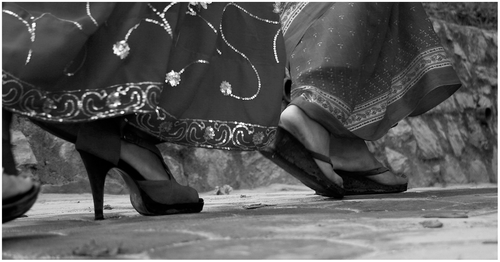Complexities of Menstruation in Kathmandu, Nepal

Thirteen-year-old me was excited to go to school! I had a new Mickey print backpack. It fit me perfectly. I eagerly readied my materials the night before. Early the next morning, I had my first period, I was terrified. I was not allowed to go to school and was locked in an empty room for seven days, as prescribed by my family custom.
After that first experience, and into the future, I am expected to follow specific rules each time I bleed. I may not enter kitchens and temples or touch male family members. I spend four days a month in my room, removed from my family, yet I am allowed to attend school and work outside. This confused and frustrated me. As a teenager, I was angry and detested the practices.
However, as I grew older, I realized that I had some power to use this discriminatory practice to my benefit—to avoid going to religious functions and to get relief from domestic activities. Sometimes, I choose to withhold information about my period from my family members so I can have agency in decision making. I follow menstrual practices to a certain extent while at my parent’s home. As a woman pursuing a PhD, I pick my battles wisely to retain family support.
To understand women’s experiences with menstrual practices, I spoke with seventy-one women aged 18 and over in Kathmandu, Nepal’s capital city and the place I grew up. Based on interview responses, a clear spectrum exists with four specific types: 1. Adherents who strictly follow menstrual practices. 2. Aspirants who would like to practice, if another family member shouldered responsibility. 3. Negotiators, who engage or defy practices when beneficial to them. 4. Opponents, who openly oppose practices, following rarely. Below I share the voices of two interviewees who reflect the complicated middle dimensions of aspiration and negotiation to illuminate existing dynamics as women navigate menstrual practices in urban Nepal.
Geeta, a 42-year-old middle-class woman from a Brahmin family, recalls her first period at eleven. She was secluded for 15 days at her neighbor’s home. Geeta strictly followed the practices for five days a month before she was married. After marriage, she continues to cook for the family, taking measures to maintain ritual purity in her activities. She notes that her limited adherence to menstrual practices keeps her connected to traditions followed in her natal family. Geeta aspires to follow menstrual practices. “I think following menstrual practices is necessary to get some rest. On the first day of my period, I don’t have an appetite, and I feel weak.” Adhering to menstrual practices would provide much-needed rest for Geeta. Several women with difficult periods emphasized that menstrual practices provided rest and respite from domestic responsibilities.

Rama, a 33-year-old woman from an upper-class Brahmin family, had her first period at age thirteen and was locked in a room at her own house. She recalls female relatives visiting with gifts, being allowed to watch television, and not looking at her father during her period. Over time, practices in Rama’s natal home became more flexible. However, her husband’s family strictly follows menstrual practices. Rama negotiates menstrual practices with her husband, who insists she strictly adheres while living with his parents. She recalls not engaging in menstrual practices when she lived for a year with her husband in the United States. Upon return to Nepal, Rama was asked to sleep on a makeshift bed on the floor pallet during her period. In refusal, she went to her maternal home during her period. Her husband has since asked Rama to take the bed, and he sleeps on the floor during her periods. Despite her negotiated resistance, Rama believes menstrual practices do have some benefits, “My husband, he is active when I am menstruating. On other days he has this mentality where he expects me to give him even a glass of water.” Rama values the ways menstrual practices challenge gender roles for several days each month.
Women presented a complex picture of menstrual practices in urban Nepal. Women are actively engaging in multifaceted efforts to redefine and renegotiate menstrual practices to gain some personal agency within societal constraints. While I do not support menstrual practices, I observe them when I am home to avoid confrontation and ensure peaceful stay and family support in my academic and research activities. My adherence is a sign of respect for my mother and her cultural beliefs.
*Pseudonyms are used to protect confidentiality.
